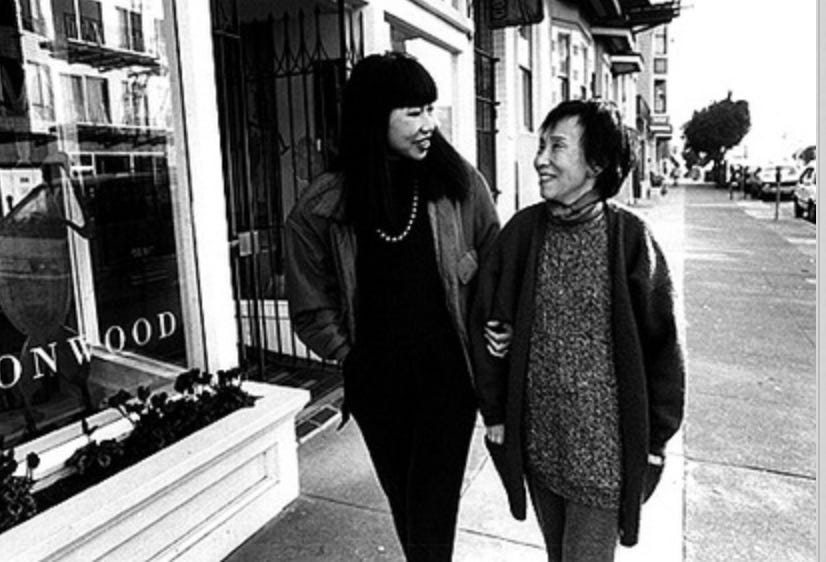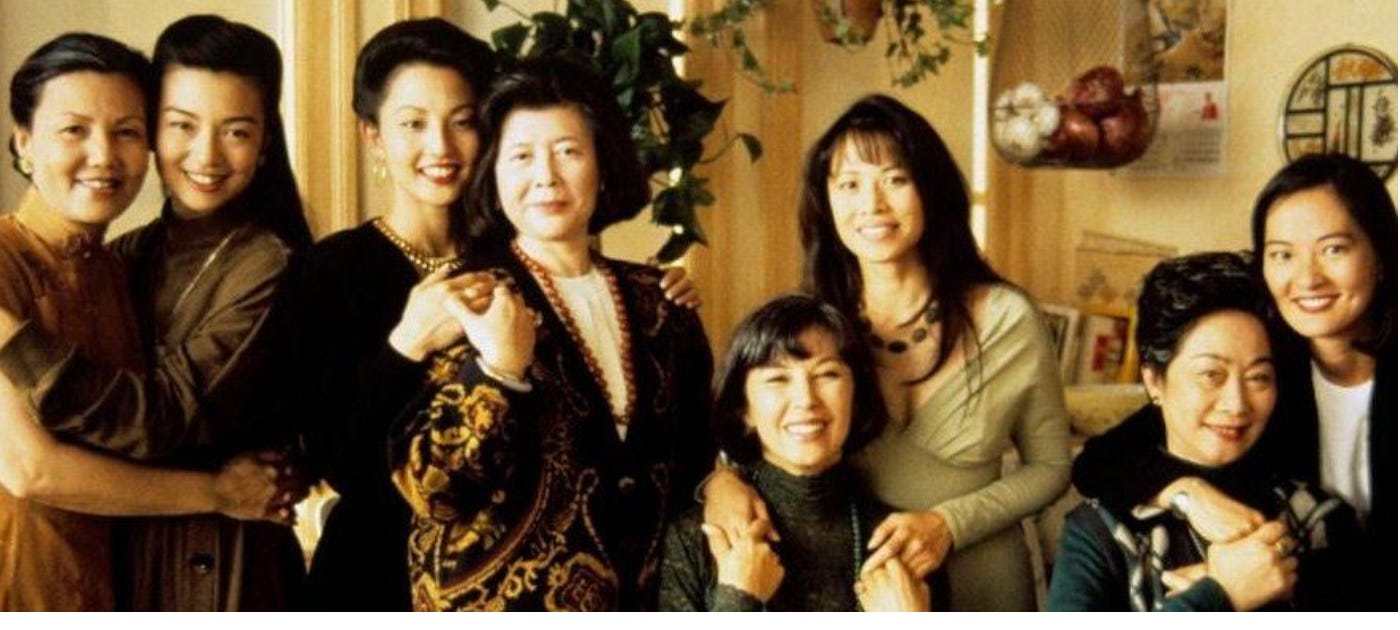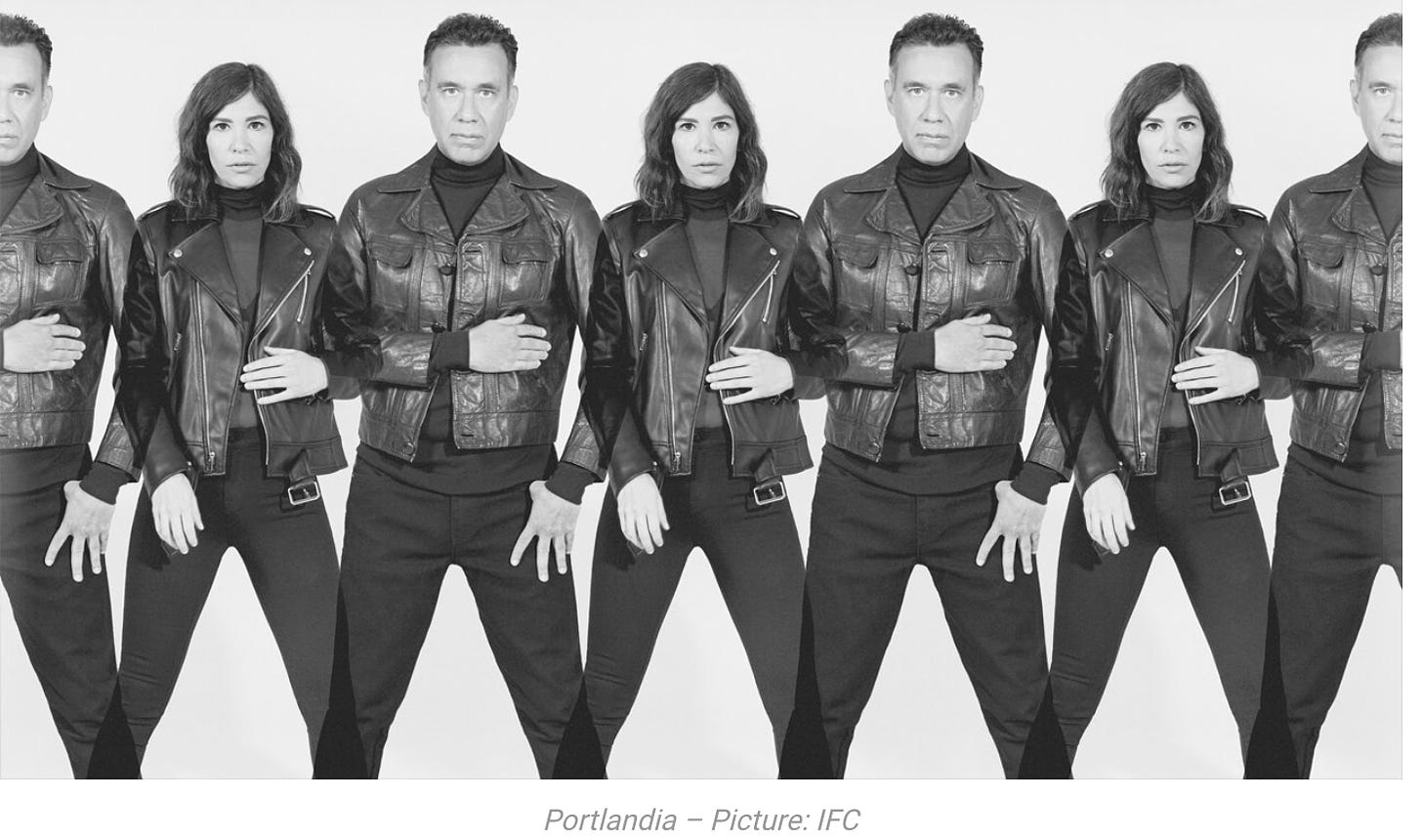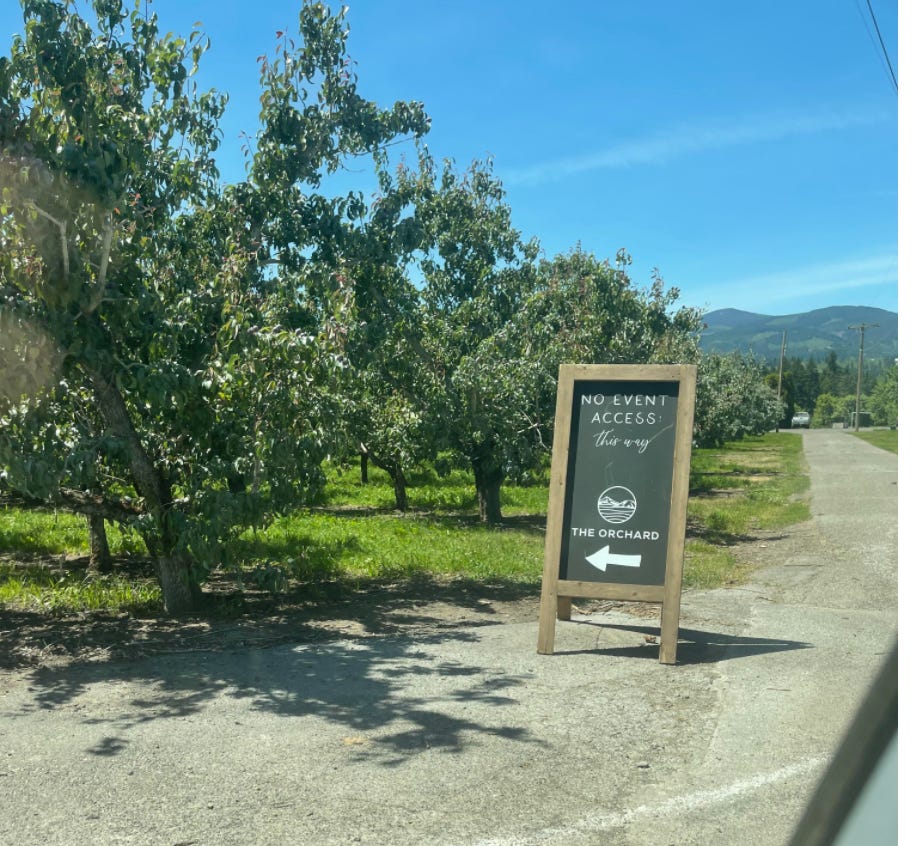Amy Tan: Unintended Memoir strikes a somber tone and Portlandia plays for laughs
My picks for your week in TV viewing pleasure
Amy Tan: Unintended Memoir on Netflix and PBS. The Joy Luck Club was one of the first books I read as a teenager and that I really enjoyed because I connected to it on a deeply personal and emotional level. I chalk this up to to the fact that while it was distinctly about Asian-American experience, it also held mass appeal because it dealt with mother-daughter relationships and honed in on the immigrant experience - the expectations placed on 1st generation American children, of which I was one.
In my case, my mother was from Eastern Europe and like Tan’s experience with her own mother, expectations ran very high. I was expected to perform well academically, to achieve high marks, to be a classical pianist, and to be polite and succeed. There was an element of the “stiff upper lip” going on but I was messy and didn’t conform easily to this. I’d say the wrong things most often or not say anything at all for fear of saying the wrong thing, and felt a sense of not living up to that bar that was set. It didn’t help that I wasn’t inclined for Science or Math - something Tan and I share - but that I was also expected to be self-reliant and financially independent. After all, liberal arts careers, historically, weren’t well known for paying well.
I immersed myself in the world of Tan as a teenager because similar to my sentiments with Aidy Bryant’s representation in Shrill, this was a woman who got me.
In Tan’s case, she was a transformative read. Her writing allowed me a channel to process my trauma at having lost my mom as a teenager while simultaneously the ability to reflect on my relationship with my mom in a deeply compassionate and personal way, plugging gaps in my mom’s personal history with what might have been to help me gain a clearer picture on how that past informed her actions and decisions as a mother. I don’t know that it afforded clarity but it definitely allowed me to appreciate the complexity and nuance of human behavior.
I’d long known that Tan is what I would classify as a quieter, more introverted writer as observed thru her interviews over the years. She doesn’t draw quick attention to herself and she’s compassionate and giving to her fans.
After watching her memoir, however, what I realized is how much of her childhood and life experience shaped her character and her fiction writing, by extension. Tan grew up with a mother who suffered from mental illness (Tan comments in the memoir, ‘My mother wasn’t a tiger mom. She was a suicidal mom.”) What she means by this is that her mother often talked about killing herself and had zero coping abilities to deal with her own trauma, of which she (Tan’s mother) had experienced profound trauma, prior to coming to the U.S and bearing the guilt that the move carried with it. As a child, Tan also lost her dad and older brother to brain tumors which signaled the end of her innocence. Shortly after, she was fondled and touched inappropriately by her pastor who subsequently also berated her for being a “dirty girl” or having “dirty thoughts.”
Without taking you too, too much into the particulars, the memoir is hypnotic and infuses autobiographical elements from Tan’s life as portrayed thru The Joy Luck Club, the film, into it. I loved the film adaptation of The Joy Luck Club as a kid and was heartened to note that Tan co-wrote the screenplay, even though prior to this experience, she had sworn off ever getting into the screenwriting business. She made an exception for this story. This is also a tidbit shared in the memoir, along with her being in a writers’ cover band with Stephen King and Dave Barry. Can anyone say, future documentary subject please?
Tan’s stories borrow from her life and that of her mother and grandmother. There is rape and abuse reflected and a culture where concubines were an actual thing. This has drawn criticism from Tan’s critics in the past who say she is a perpetuator of a type of Chinese stereotype by telling this type of story, but she is quick to share that this is her story and she’s not aspiring to do more than share that or be more than that because anything less authentic would betray her artistic integrity.
Kevin Kwan, well-known author of Crazy Rich Asians provides his own experience growing up in Houston and how Tan made popular and mainstream the Asian American experience, moving away from classic Chinese tropes and stereotypes, to humanize Asians and reflect truer experience. This opened doors for others, himself included.
In summary, if Tan is your jam, then take some tissues and go find yourself a quiet corner/alcove/nook/room in your abode and watch. For me, it was a solitary experience on a plane trying hard not to ugly cry and smear concealer. For you, it might be something else. No judgement.
Portlandia on Netflix (till June 10th) Watch Portlandia now. It’s only on Netflix for a few more days. This weekend I’m in Portland, which is why, prior to air trekking the 5.5+ hours from Boston to Portland on the lovely Jet Blue (highly recommend), I decided to catch up on Season 7 of Portlandia and it doesn’t disappoint.
Episode 2 (“Carrie dates a hunk” who happens to be Ryan Hansen, real life BFF of Kristen Bell and former actor on Veronica Mars) and Episode 6 “Friend Replacement” with Trailblazers star Damian Lilliard and Roseanne star Laurie Metcalf are stand outs.
Of note, watch the sketch titled, “Wedding Directionless” below. In it, Fred and Carrie are looking for a wedding in a vineyard only to find others also looking for other weddings. Wedding marker signs are unclear and the actual wedding invitations point to 2 different locations.
Coincidentally…While traveling in the “Hood River Fruit Loop,” I asked my brother to pull over at one of the quaint farm orchards off the side of the road. This ended up being a vineyard where we drove in. At this point, I share with my siblings the story of this clip and how this vineyard reminded me of the place in that episode. And wouldn’t you know it, IRL a man on a tractor further down the path, who we stropped to ask for directions to the farm orchard, from, asked us if we were looking to get to a wedding. Did art imitate reality or reality imitate art here?








